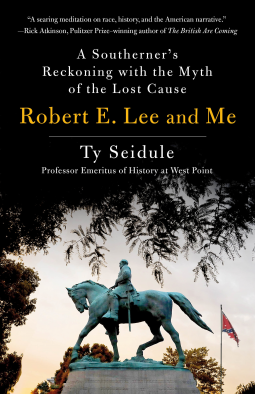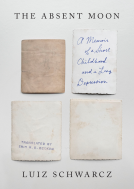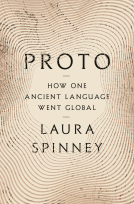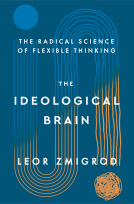
Robert E. Lee and Me
A Southerner's Reckoning with the Myth of the Lost Cause
by Ty Seidule
This title was previously available on NetGalley and is now archived.
Send NetGalley books directly to your Kindle or Kindle app
1
To read on a Kindle or Kindle app, please add kindle@netgalley.com as an approved email address to receive files in your Amazon account. Click here for step-by-step instructions.
2
Also find your Kindle email address within your Amazon account, and enter it here.
Pub Date Jan 26 2021 | Archive Date Feb 09 2021
Description
"Ty Seidule scorches us with the truth and rivets us with his fierce sense of moral urgency." --Ron Chernow
In a forceful but humane narrative, former soldier and head of the West Point history department Ty Seidule's Robert E. Lee and Me challenges the myths and lies of the Confederate legacy—and explores why some of this country’s oldest wounds have never healed.
Ty Seidule grew up revering Robert E. Lee. From his southern childhood to his service in the U.S. Army, every part of his life reinforced the Lost Cause myth: that Lee was the greatest man who ever lived, and that the Confederates were underdogs who lost the Civil War with honor. Now, as a retired brigadier general and Professor Emeritus of History at West Point, his view has radically changed. From a soldier, a scholar, and a southerner, Ty Seidule believes that American history demands a reckoning.
In a unique blend of history and reflection, Seidule deconstructs the truth about the Confederacy—that its undisputed primary goal was the subjugation and enslavement of Black Americans—and directly challenges the idea of honoring those who labored to preserve that system and committed treason in their failed attempt to achieve it. Through the arc of Seidule’s own life, as well as the culture that formed him, he seeks a path to understanding why the facts of the Civil War have remained buried beneath layers of myth and even outright lies—and how they embody a cultural gulf that separates millions of Americans to this day.
Part history lecture, part meditation on the Civil War and its fallout, and part memoir, Robert E. Lee and Me challenges the deeply-held legends and myths of the Confederacy—and provides a surprising interpretation of essential truths that our country still has a difficult time articulating and accepting.
Available Editions
| EDITION | Other Format |
| ISBN | 9781250239266 |
| PRICE | $27.99 (USD) |
| PAGES | 304 |
Featured Reviews
Imagine finding out everything you learned growing up was a lie, that the historical figure that you revered as a god and even ranked them higher than Jesus was actually a traitor to his country. Imagine believing a narrative of history that taught you all the wrong things about one of the most consequential wars in your nation’s history. All of this happened to West Point Professor Emeritus of History Ty Seidule. In Robert E. Lee and Me, Ty Seidule gives an unvarnished, no holds bar account of how he grew up learning about the Lost Cause Myth and venerating the Confederate general Robert E. Lee. This book is a history of Lee, the Lost Cause, and one White Southern Historian/Soldier’s reckoning with the legacy of White supremacy on his life and the life of America.
Most of Ty Seidule’s life, from cradle to adulthood, revolved around honoring and revering Robert E. Lee and the Confederacy. Seidule developed a special attachment to Lee because they shared the same birthday. Seidule’s favorite childhood book taught him to revere Lee as a hero because he was against slavery even though in reality the pro-slavery Lee was actually fighting on the side of a confederation of states who were hoping to create a slave republic. In his book, Seidule takes the reader on a journey from his hometown in Alexandria, VA, to his adopted hometown of Monroe, GA, to his college days at Washington and Lee University, to his army days at Fort Bragg, and finally to his teaching days at West Point. In each location or institution, Seidule uncovers his and the nation’s racist past that promoted the Lost Cause and hid horrible tragedies inflicted on Black people.
Seidule weaves in Lee’s biography as he tell his own story. In his chapter on Washington and Lee University, he tells of Lee’s second act after the Civil War as president of the university, but what’s actually interesting is the story of how parts of the university (specifically Lee Chapel) later became a shrine to Lee and the Confederacy. Seidule shows in vivid detail how some of the origins of the Lost Cause mythology came out of that chapel. When Seidule covers his own army days he writes that many military posts in the South are named after other traitorous Confederate soldiers (Fort Bragg, Benning, and Gordon to name a few). He is especially effective in this chapter when he uses the Confederates own words against them especially when they dealt with their views on slavery and Black people. Seidule does not hold back throughout the book, he shows the hypocrisy of the Army who honors White supremacists by naming forts after them. But it doesn’t stop with the forts. As towns and cities erected Confederate statues and monuments across the country, the Army also embraced symbols of the Confederacy during notable debates on integration in the 20th Century, Seidule provides thorough historical evidence to prove his points.
His book ends by first covering West Point’s fascination with the Confederacy, which is another interesting story because the school was initially anti-Confederate during and immediately after the Civil War. Seidule provides superb historical analysis to explain why hatred of the Confederacy turn into reverence in the 20th and 21st Centuries. Second, Seidule concludes with a forceful reckoning with his former hero Robert E. Lee. He uses history and Lee’s own words to take down each of the stubborn Lost Cause Myths we have about Lee. One of those myths was that Lee “was born to make” the decision to join the Confederacy, he was not, he chose to do so.
Seidule has given readers a powerful book that will challenge and hopefully encourage them to uncover the racist pasts of their own upbring. It will also challenge the Lost Cause myths we all were raised up on in regards to the Civil War and it will help to solidify the fact that Robert E. Lee was not a hero but a traitor to the United States. Robert E. Lee was not born to become a Confederate he was born to be a Union man. Ty Seidule, this Southern soldier and scholar who once revered Lee and the Confederacy but later learned the true history was born to write this book. He has done his nation a great service in writing this important work of nonfiction.
 Peter S, Reviewer
Peter S, Reviewer
As a long time student of the Civil War this book proved to be an amazing read. It opened my eyes and gave me a better understanding of the "Lost Cause" generation. Having grown up in the north I could never understand why those south of the Mason Dixon line could not perceive that slavery was the cause of the Civil War. It always seemed obvious to me that if you removed that from the equation all other reasons would disappear. The author's credentials and writing ability helped understand how this misconception could have been achieved. His research is impeccable and his prose made this a book I could not put down.. All future students of the Civil War owe him a debt of thanks for his excellent development and reporting on a very controversial subject.
Readers who liked this book also liked:
Rev. Dr. Suzanne Nicholson
Christian, Nonfiction (Adult), Religion & Spirituality


















